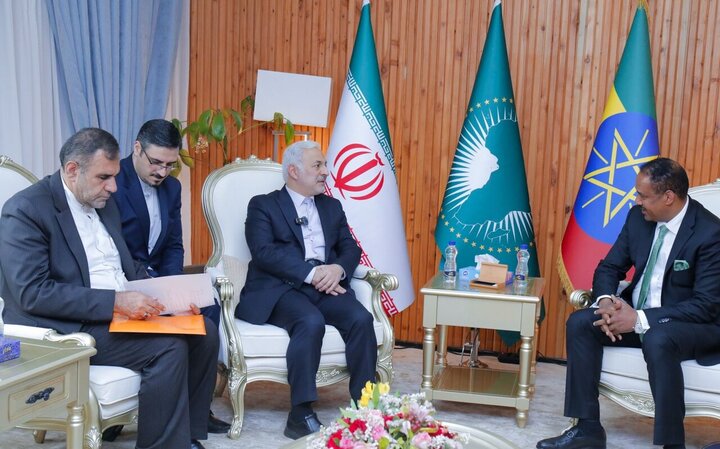ADDIS ABABA, Ethiopia — In a move signaling deepening ties between Ethiopia and Iran, the two nations signed a memorandum of understanding on May 6, 2025, aimed at enhancing cooperation between their national police agencies.
The agreement focuses on combating cross-border crime, intelligence sharing, and capacity building.
The signing ceremony took place in Addis Ababa, with Ethiopia’s Minister of Peace, Binalf Andualem, and Iran’s Deputy Interior Minister for Security and Law Enforcement, Majid Mirahmadi, representing their respective countries.
The agreement outlines collaborative efforts to address transnational threats, including terrorism, human trafficking, and narcotics smuggling.
“This partnership is a testament to our commitment to regional stability and the fight against organized crime,” said Minister Andualem during the ceremony.
“By sharing intelligence and best practices, we aim to bolster our national security frameworks.”
Iran’s Deputy Interior Minister Mirahmadi echoed these sentiments, emphasizing the importance of mutual cooperation in addressing security challenges that transcend borders.
“Our collaboration with Ethiopia is rooted in shared interests and the recognition that security is a collective responsibility,” he stated.
Analysts view this agreement as part of a broader strategy by both nations to strengthen their positions in the Horn of Africa. Ethiopia, emerging from internal conflicts and seeking to rebuild its international partnerships, finds in Iran a willing ally with experience in counterterrorism and border security. Conversely, Iran’s engagement in Africa is seen as an effort to expand its influence and counterbalance Western presence in the region.
However, the agreement has raised concerns among some Western observers, who caution that increased Iranian involvement in East Africa could complicate existing security dynamics.
“While cooperation on security is beneficial, it’s essential to ensure that such partnerships align with broader international efforts to maintain regional stability,” noted a senior analyst at the International Crisis Group.
The memorandum includes provisions for joint training programs, exchange of expertise, and the establishment of liaison offices to facilitate ongoing communication between the two countries’ law enforcement agencies.
Both parties have committed to regular evaluations of the partnership’s effectiveness and to making necessary adjustments to address evolving security threats.





